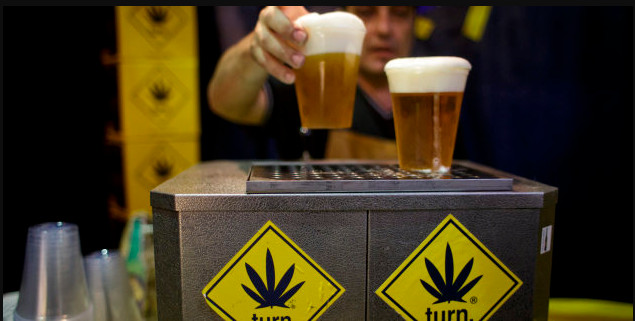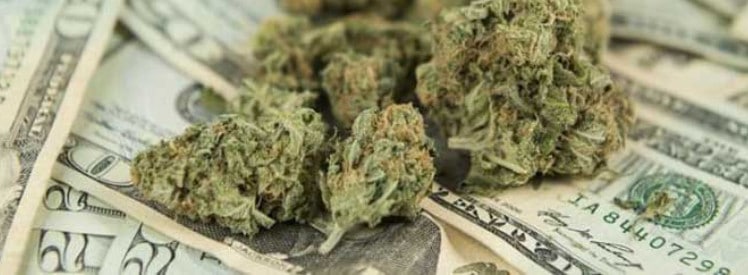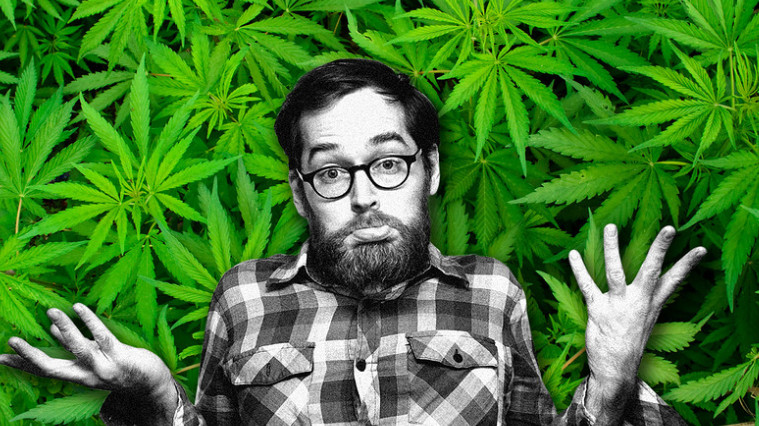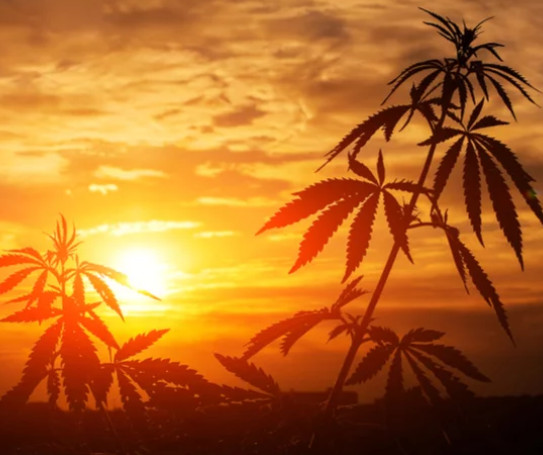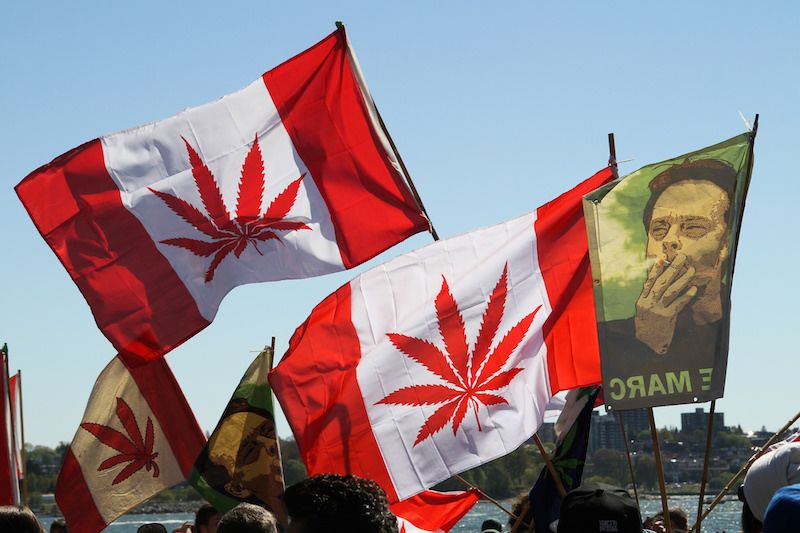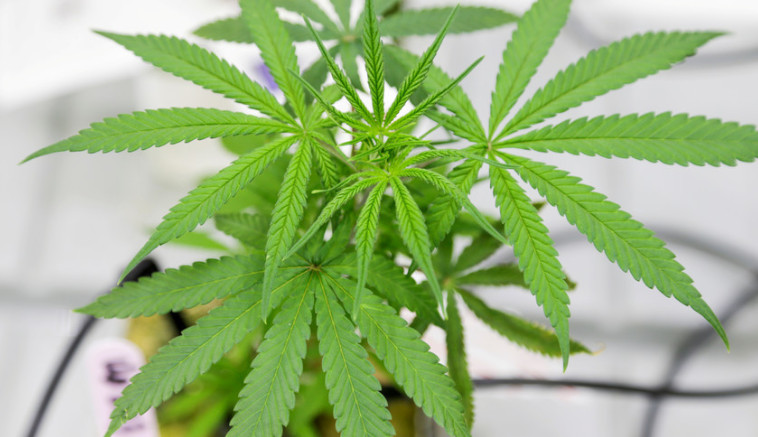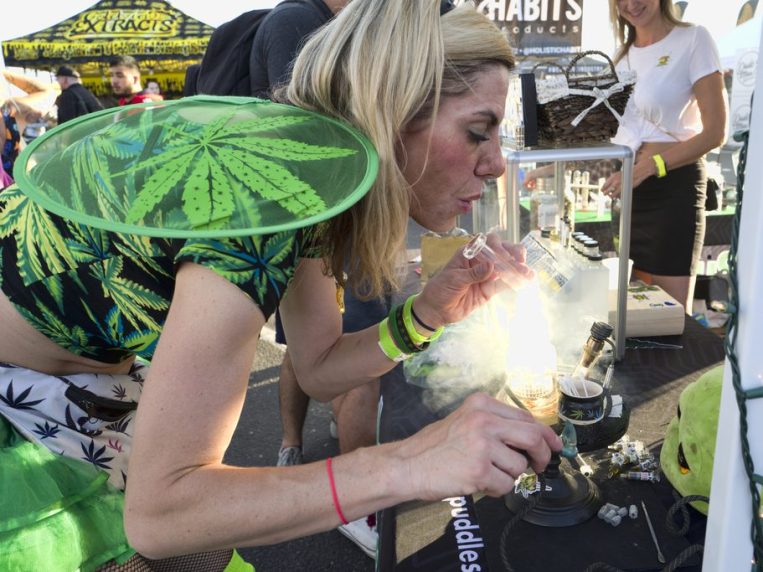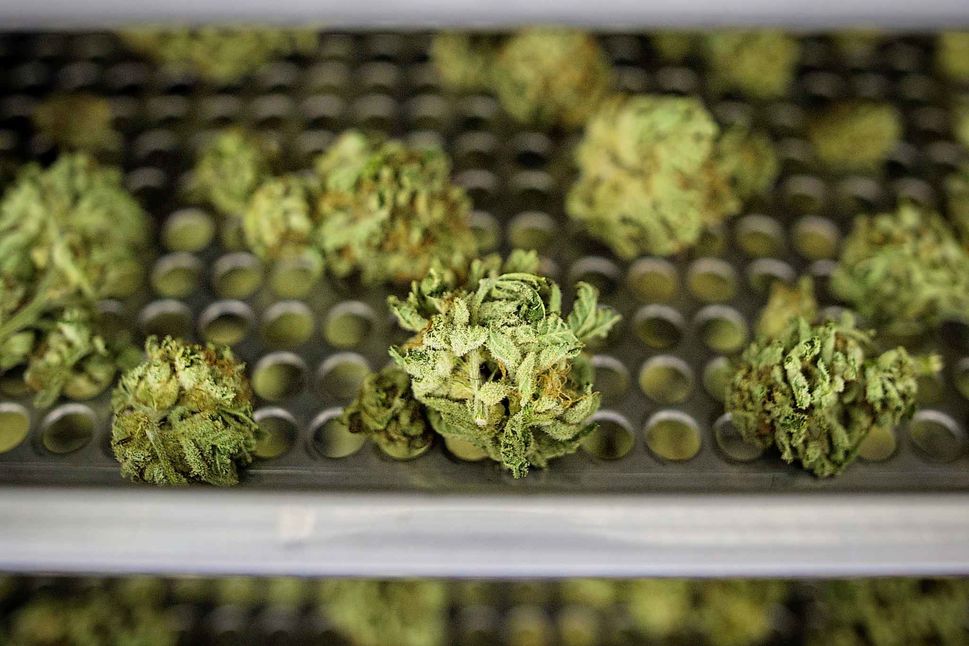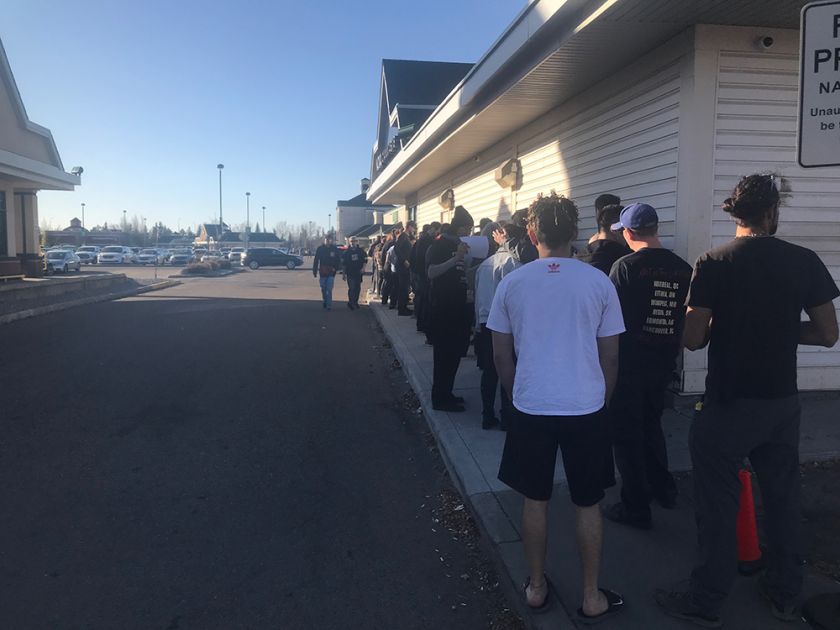The first time Dooma Wendschuh tried brewing cannabis into beer, it “tasted like rotten broccoli,” the co-founder of Belleville, Ont. startup Province Brands told The Guardian. But once he figured it out, the resulting “beer” — which is gluten-free and does not contain alcohol — was “dry, savoury, less sweet than a typical beer flavour,” Wendschuh told the British paper. “The beer hits you very quickly, which is not common for a marijuana edible.”
Wendschuh moved to Toronto from Miami in 2016, seeing a market opportunity in Canada’s upcoming marijuana legalization. Drinks and edible forms of weed won’t instantly become legal once provinces start selling pot in October — edibles won’t be sold until several months later, the government has said — but companies are already rushing to fulfill that future demand.
Research on alcohol sales in U.S. states that have legalized pot predicts that cannabis could grab up to 20 per cent of the Canadian alcohol market. Ontario-based Canopy Growth, the first publicly-traded cannabis company in North America, is researching cannabis-infused cocktails. “We’re going to create a platform of products that will be great for a party and in demand globally,” Canopy Growth CEO Bruce Linton told CBC in June. “We think beverages are going to fit in.” Molson-Coors is also looking into weed-infused beer.
Beverage producers found some success internationally. The U.S. craft brewer Lagunitas — which is owned by Heineken — is selling an “IPA-inspired” non-alcoholic “beer” infused with cannabis, in California dispensaries. Legion of Bloom, a California pot provider, has also introduced a sparkling wine infused with cannabis, the Los Angeles Times reported last summer. And late last year, the California winery Rebel Coast announced plans to release a Sauvignon Blanc “weed wine.” Like the “beers,” the wine is non-alcoholic — THC “replaces” alcohol, as the company explains it.
Many weed drinks, like Lagunitas’s, are brewed with barley in the same way as traditional beer, and then infused with oil from the cannabis plant. But Province Brands is trying something different by taking barley out of the equation and instead using the stalks, stem and root of the cannabis plant. “The ingredients for our products are very simple: cannabis, hops and water,” Wendschuh says. They’ve already created an India pale ale and an imperial pilsner.
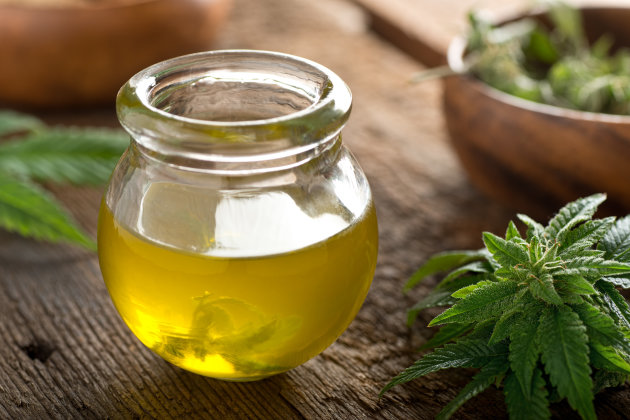
Credit: www.huffingtonpost.ca
Because marijuana isn’t legal yet, these companies face a fairly unique challenge: they can’t legally test their products out in Canada yet. “If I wanted to open an ice cream parlour, I could just open it. If I wanted to make a new flavour of ice cream, I could just make it. If I want to make a marijuana beverage, I can make it, but no one is allowed to drink it,” Wendschuh told CBC earlier this month. Province Brands has instead been conducting taste tests outside of Canada, he explained.
One of the benefits of cannabis drinks, aside from avoiding a hangover, is that they lack the high calorie count of wine or beer. “If I could have a beverage that actually makes me a bit giddy and doesn’t give me any calories, I’m feeling pretty good about that choice,” Bruce Linton said. Jennifer Lee, a cannabis expert at Deloitte, told CBC that the millennial market in particular is searching for low-calorie drink options. And many drink producers are deliberately taking out the chemicals that give smokers the “munchies,” she added.
The federal government hasn’t yet provided a date for when stores can legally sell edible products containing marijuana. According to Deloitte, goods and services related to weed — a category that includes both drinks and edibles — could be worth up to $22 billion.
Credit: www.huffingtonpost.ca

